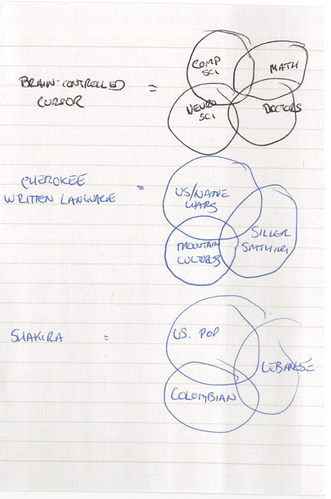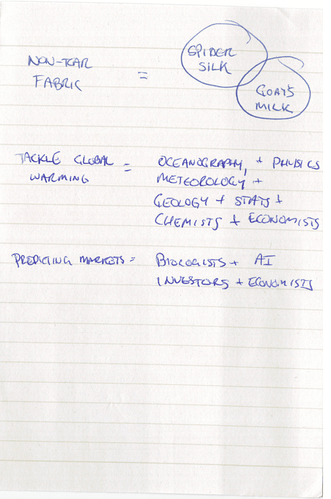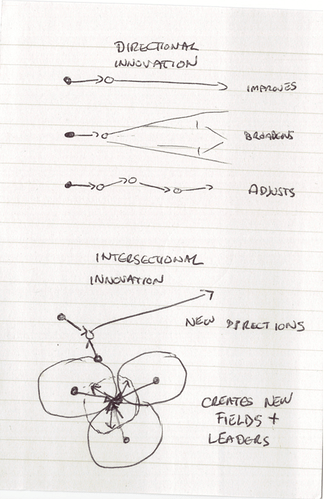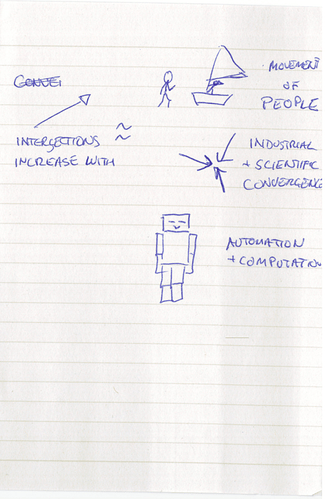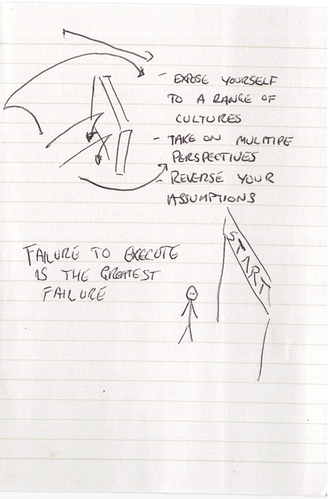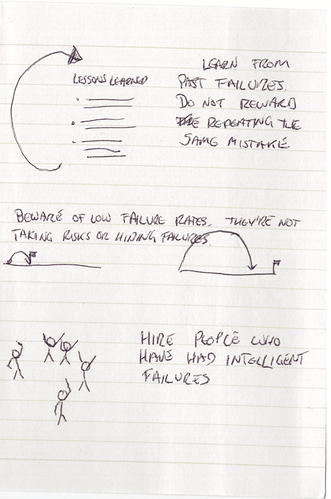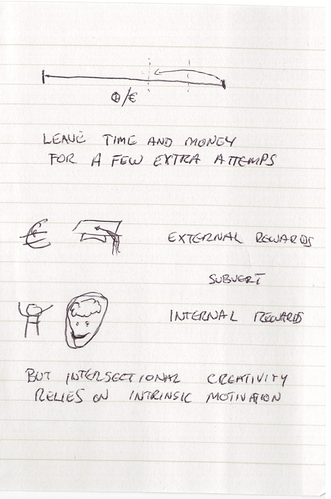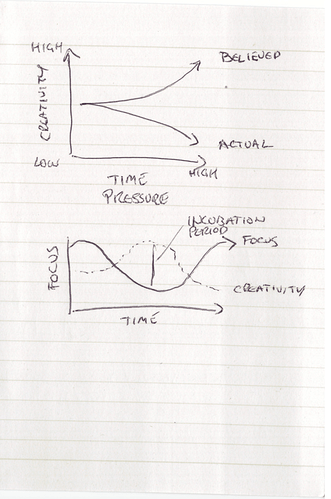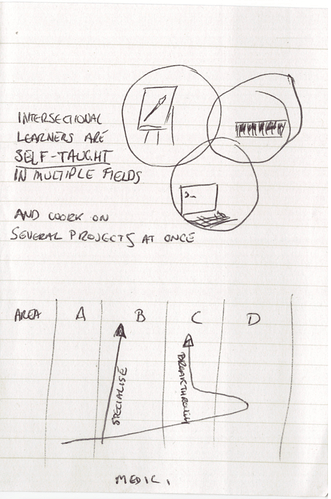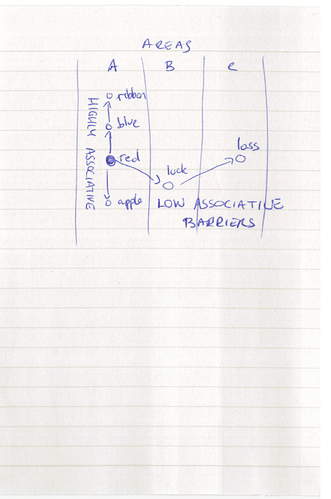The Medici Effect is easily the most relevant book I’ve read regarding peer to peer innovation. The central theory revolves around finding innovation at the intersection of different disciplines and communities.
It’s really relevant to us in how it looks at systematic ways to innovate at “The Intersection.” It comes at it from more of an individual than community perspective but in other ways, it goes farther than Source. It clearly connections particular innovations to particular intersections:
Those are just a few of the examples from the book, but we can see the potential. This type of mashing up is what I’m hoping we can do systematically with Source Summit. It’s also the origin story for Leancamp, but these days the Leancamp community is more focused on what the author describes as Directional innovation.
Intersectional is a slightly broader view on cross-discipline. It includes connecting different communities or perspectives, not just disciplines. Intersections increase as people become more mobile, sciences converge and automation frees us to develop something to another stage.
The book focuses on how one can maximise their changes of finding an intersectional breakthrough:
Incentive systems have to maximise intrinsic motivation, since it’s that internal drive for learning new things that makes allows people to find intersections.
And that creativity you get from giving yourself some chill time is what moves the needle…
Our biggest opportunities at Source are touched on - rather than look at intersectional innovation from an individual level, Source looks at it from a community level. You increase the chances of breakthough innovations by creating the right environement for a portfolio of innovations, rather than trying to systemise innovation at an individual level.
A unique aspect of our unconferences is the idea of curating through ambassadors to different communities. These days, ambassadors are seen primarily as promoters, but a much more valuable idea of their role used to exist. The Medici Effect talks about intersectional naturals, which reminded me of a lot of people from the early days of Leancamp. For our unconferences that really want to move into new spaces, I think we should look for people with the same characteristics:
One of the biggest takeaways for me is that people who have a range of perspectives, reverse their assumptions and hve exposure to a range of cultures are those that make good ambassadors. And actually, good Source Fellows.
I think we have low associative barriers at Source, but thinking about this explicitly, I think we can lower them further.
I’d like to find, support and include people who have low associative barriers. Rather than look at them as temporary ambassadors for events, look to include them to be more permanent curators. Either Source Fellows or users of our tools.
Food for thought, but in any case, I think The Medici Effect is a must-read for Source in 2016.

